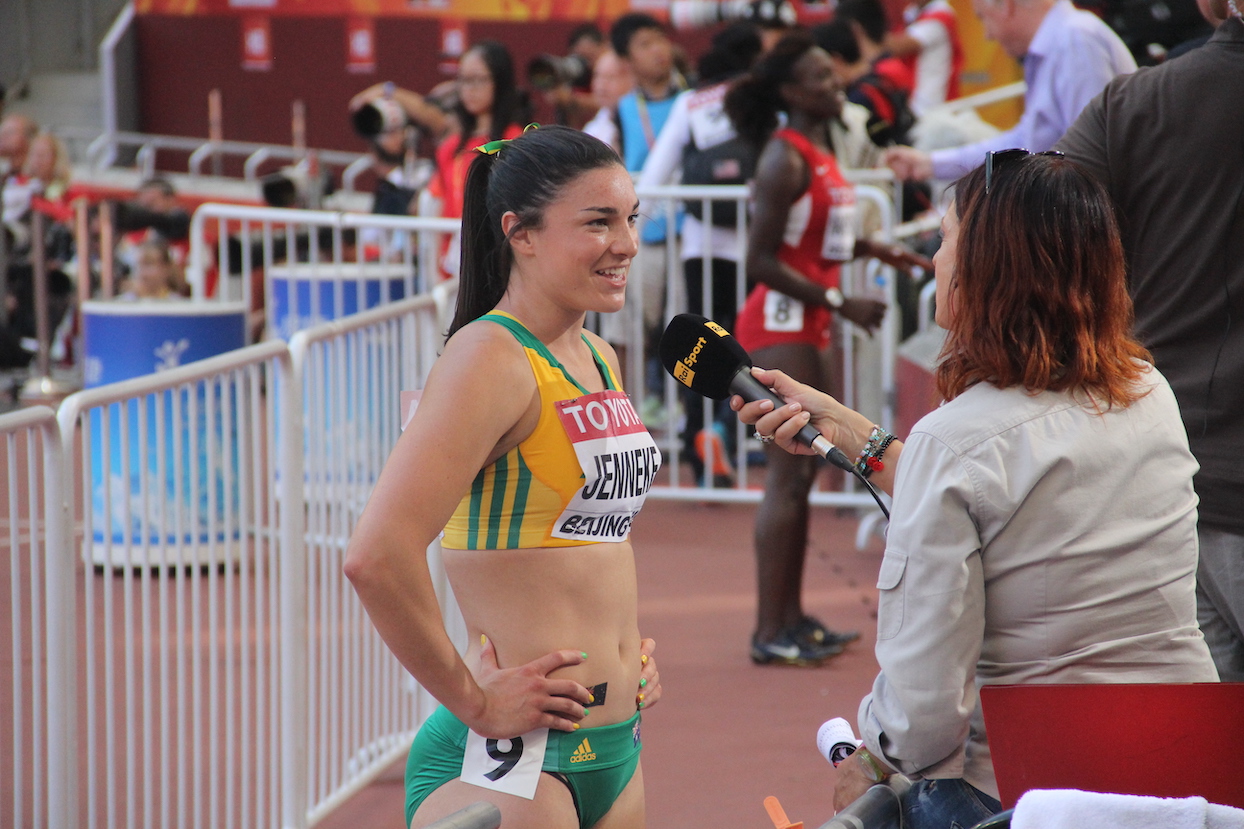By now, you’ve already seen a million videos of the dance she does before training. It’s amaizng.
Michelle Jenneke got that Lean While Training For
a 13 second race
I bring this up because I still run into people who think that to take their fat loss to the next level they need to
be training for a Marathon or Oly Distance Triathlon. Nothing could be further from the truth.
Now I’m not saying that there is anything wrong with training for longer distances – I’m just saying that it’s absolutely not necessary.
The clients I train tend to have very busy lives, and want to maximize the time they put into their fat loss workouts. They want to get as lean as possible with as little time in the gym as possible.
Training for longer distance races necessitates longer distance training. Longer distance = more time.
Lets Take a Look At What Training for The 100 Meter Hurdles Looks Like
At a beginner level (which is what most fat-loss/marathon-or-triathlon-running clients train at), training for the 100 meter hurdles looks like this:
1.) Practicing starts out of the blocks – starting to sprint, then going over 1-3 hurdles
2.) Short hurdle intervals – again going over 2-4 hurdles, not coming out of the blocks
3.) Hurdle rhythm drills
4.) Hurdling drills
5.) Sprinting starts out of blocks
6.) Sprinting – 50 meters, 100 meters, once in a while 200 meters
7.) Strength training – Two or three days per week
Lets take a look at what all of the elements of those workouts have in common – most of them are intervals that are between 5-20 seconds.
And besides being really short intervals (5-20 seconds is pretty short), they usually have full rest between intervals.
You should add short burst intervals into your fat loss workouts. Go to a field, a park, or track. Do 5-10 second sprints. After each sprint, walk back to where you started. Catch your breath, then do another. Try that for 20 minutes (or until your form breaks down). Let me know how you like it.
Conventional Wisdom is That Longer is Better
Most fat loss trainees (and the media) falls into the trap of longer is better.
The thinking for runners is: If I can survive a 5k, I should run a 10k. If I live through a 10k, I should do a half marathon. If I only get one or two overuse injuries, I should go for a marathon. If a marathon doesn’t cripple me, I’ll do it again.
Fat loss trainees doing tris follow the same format: Super Sprint Tri -> Sprint Tri -> Olympic Tri – Half Tri -> Ironman.
The only problem is that the people who are “surviving” longer and longer distances are usually skinny fat.

Racing As a Path To Fat Loss
I’m going to make this simple: If you want to lose fat, you have to run faster.
It doesn’t even matter what distance you race. The people who are leanest are the ones who are running the fastest at that distance.
You could get lean training for marathons if you train run them fast.
Or…
You could get lean training to run the 100 meter hurdles if you train run it fast.
The distance doesn’t matter at all.
The people training to be fast get lean. The people training to survive longer get skinny fat.
Embed from Getty Images
The warmup dance!
One Other Thing
Back to the video of Michelle Jenneke.
Notice that before the race she’s laughing and smiling and dancing and having fun…
…then when the race starts she’s deadly serious…
…and then when it’s over she’s laughing and smiling again.
There’s a lesson there too.
-Josh Hillis, RKC, CPT, PES, ZMIS
Josh you always have the best examples…great stuff as always.